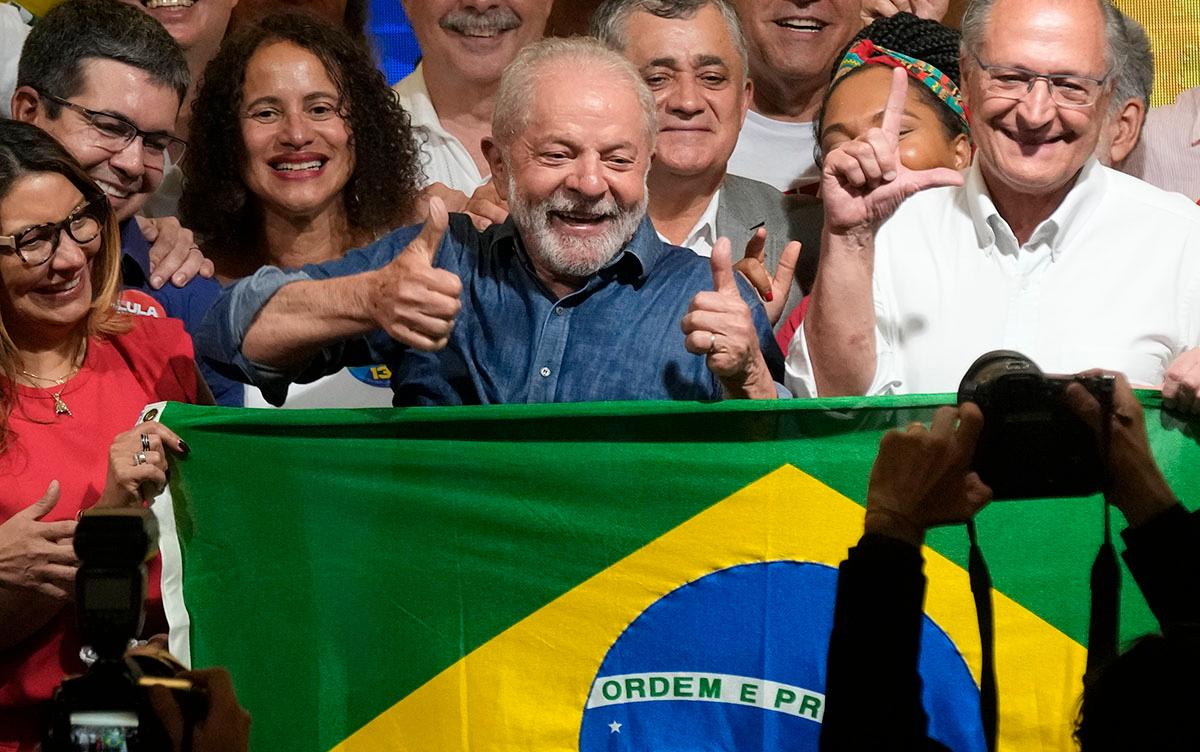With a sluggish economy and a high crime rate, it will be easy to mobilize against Brazil's newly elected president
Of:
Cas Mudde
Published: Today 11.40
This is a cultural article that is part of Aftonbladet's opinion journalism.

Lula da Silva celebrated victory in the Brazilian election last night. Photo: Andre Penner / AP
CULTURE
For those who found the first round of the Brazilian presidential election to be an excruciating nail-biter, the second round was even worse.
Of course Lula da Silva won, but only by a margin of barely two percentage points.
Although there are clear signs of attempts to keep down turnout, for example by the traffic police setting up roadblocks in states where Lula has support, the fact remains: Brazil is both a divided and radicalized country.
Far-right President Jair Bolsonaro will continue to be a destabilizing force in Brazil's politics and social life, not least as several of his allies won the elections in important states. Lula will therefore not only be forced to face the usual foul play of a Congress largely hostile to him and his Workers' Party (PT), but now also Bolsonaro's strongly committed supporters on the streets.
The risk is great that Bolsonaro will not admit the election loss, but will instead try to use the power in the streets to force a new vote count or try to stage a coup d'état in the style of the storming of the Capitol.
He now returns to an energy crisis and a world economy where several important countries are in or close to recession
When Lula now regains the presidency, he has a very difficult task ahead of him. He ran on the equally stated and implied – but unrealistic – promise that the golden years of his previous presidency (2003–2010) would return. But he was then president in another world and in another Brazil. At the time, Lula was able to benefit from high oil and gas prices and a world economy that was generally doing well. He now returns to an energy crisis and a world economy where several important countries are in or close to recession.
In Brazil, public opinion has become more negative towards the Workers' Party, and more right-wing, while Bolsonaro and his supporters have created a counterforce in politics and on the streets. With a sluggish economy and a high crime rate, the far right will be in a perfect position to mobilize against Lula, whose already moderate popularity could drop quickly.
It is not difficult to see the similarities with the United States. Both Trump and Bolsonaro were defeated by centre-left politicians who mainly represented a relatively popular recent past. Both of them would have continued to govern if the corona pandemic had not struck - it is clear that they themselves struggled with the state's measures.
If the US example is anything to go by, Bolsonaroism will survive even if Bolsonaro does not remain its undisputed leader. The radical right movement has never been about the leader. It is about a broad wave of economic but above all culturally conditioned dissatisfaction that exists in all social classes. It is reinforced and organized by a large infrastructure of political and religious organizations and fueled by an amorphous network of media both on and off the Internet.
Lula has not defeated the far right, but he has won some extra time for Brazil (and for the planet).
Cas Mudde is one of the world's leading researchers on political extremism and populism in Europe and the USA. He is currently active at the University of Georgia, USA.

Inga kommentarer:
Skicka en kommentar